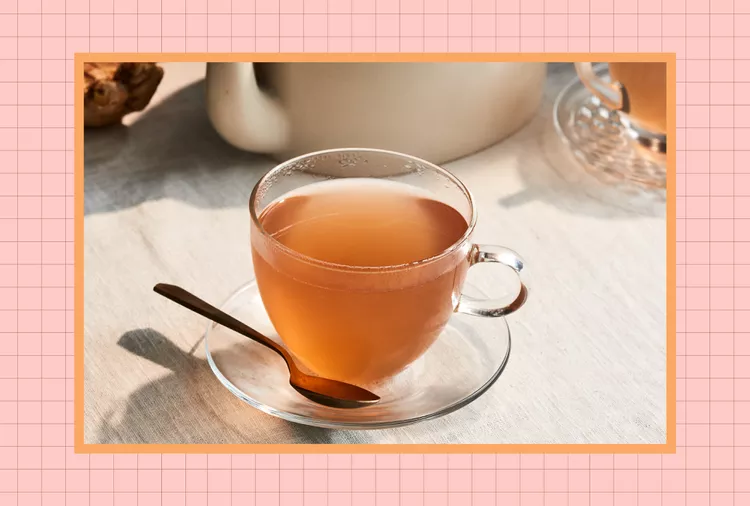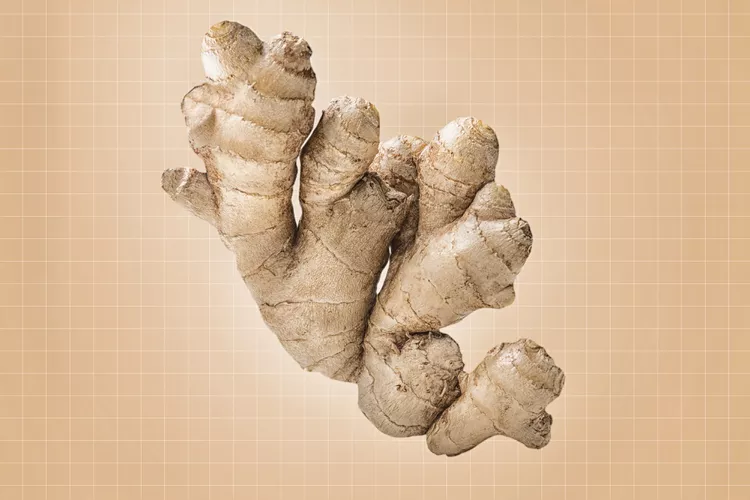Anxiety is a common emotion experienced by individuals daily, but for individuals with anxiety disorders, these emotions may persist and interfere with their ability to engage in daily activities. Although medication and therapy are the primary treatments for anxiety, diet and nutrition can also play a significant role in improving one's mood. According to nutrition experts, staying adequately hydrated and consuming certain drinks may help reduce anxiety levels. In this article, we will discuss the top four beverages recommended by dietitians for anxiety relief.
The Top Four Drinks for Anxiety Relief
1. Chamomile Tea
If you suffer from insomnia, you may have heard that chamomile tea can improve your sleep quality. The same relaxing impact that helps sleep may also reduce anxiety. "Chamomile tea is good for anxiety because of its active component, apigenin. Apigenin, a flavonoid molecule found in chamomile, has been proven to have anti-anxiety properties," explains Wan Na Chan, M.P.H., RD, owner of One Pot Wellness (1). In fact, she cites research indicating that chamomile extract has been shown to reduce anxiety, boost mood, and ease pain (2). Stick to chamomile tea, which is typically deemed safe, rather than other forms, such as extracts (3).
2. Green tea
Green tea is a widely consumed beverage that is purported to offer a range of health benefits, including a reduction in inflammation, improved digestion, and lower blood sugar levels. It is also believed to have anxiolytic properties, attributable to its content of L-theanine, an amino acid that has been linked to mood improvement and reduced anxiety symptoms. Several studies have demonstrated the efficacy of L-theanine in lowering anxiety and tension, with one study revealing that taking 200 to 400 mg of L-theanine could significantly reduce anxiety levels (4). In a small trial, participants reported greater benefits in their sleep, sadness, and anxiety after consuming 200 mg of L-theanine daily for four weeks, as compared to a placebo group (5). However, it is important to note that the amount of L-theanine in supplements is significantly higher than that found in a cup of brewed green tea, which usually contains between 8 to 30 mg.
Fruit Juice 100%
Fruit juice has been found to have a mood-enhancing effect(6). Antioxidant deficiency has been linked to increased anxiety and depression, which may be attributed to elevated oxidative stress and inflammation. While whole fruits and vegetables are preferred due to their fiber content, a glass of 100% fruit juice may also have positive impacts on mental health. Data from a large-scale study involving nearly 62,000 participants revealed that those who regularly consumed 100% fruit juice reported fewer days of anxiety than non-juice drinkers (7). To reduce the sugar content of fruit juice, it can be combined with unsweetened tea, as demonstrated in our Hibiscus-Pomegranate Iced Tea recipe.
4. Water
Feeling aggravated and tense? Pour yourself a glass of water. As Laura M. Ali, M.S., RDN, a gourmet nutritionist and author of MIND Diet for Two, explains, "Water is crucial for delivering essential nutrients and energy to our brain, and it helps maintain blood flow throughout our body." Research suggests that individuals who drink insufficient water may experience higher levels of anxiety and depression (8).Moreover, even a slight decrease in hydration levels (1%) has been linked to negative emotions such as anger, hostility, sadness, and stress (9). If you dislike drinking plain water, consider trying Strawberry, Basil, and Lime Infused Water or incorporate more hydrating foods into your diet.
Additionally, here are three more beverages that can help reduce stress:
1. Milk:
Consuming a calcium-rich diet may improve mood. A study of over 1,200 college students found that those who consumed more calcium experienced less stress and anxiety (10). Drinking a glass of milk can help you increase your calcium intake. One cup of low-fat milk contains about 25% of your Daily Value for calcium(11).
2. Fermented drinks
Given the growing understanding of the brain-gut connection, it's worth noting that certain beverages, such as buttermilk and kefir, contain probiotics that may promote better mood. "Kefir is a naturally fermented dairy drink containing active beneficial bacteria, Lactobacillus, which is essential for maintaining gut health and may even play a role in brain health. Lactobacillus has been shown in preliminary studies to alleviate anxiety," explains Ali. "These probiotic bacteria reduce inflammation in our brain, which increases the signaling in our brain to release the hormone serotonin, known for its calming effects," she says (12).
Ginger Tea
Ginger is commonly recognized for its ability to mitigate pain. Since anxiety and inflammation are interconnected, a warm cup of ginger tea may provide relief. Consider preparing Soothing Ginger-Lemon Tea or Orange-Ginger Tea (13).
In Summing Up
Diet alone cannot alleviate anxiety. If you are experiencing persistent anxiety, it is important to consult with a qualified healthcare professional to explore potential treatment options. Some aspects of your diet, particularly what you drink, may contribute to a sense of tranquility in your daily life. When feeling stressed, improving hydration may provide relief. Although water is excellent, other anxiety-reducing beverages such as tea and fruit juice may also be beneficial. With the growing understanding of the connection between gut health and overall well-being, fermented beverages like kombucha and kefir may be worth incorporating into your drink rotation.
References
1. Kramer DJ, Johnson AA. Apigenin: a natural molecule at the intersection of sleep and aging. Frontiers in Nutrition. 2024;11:1359176.
2. Amsterdam JD, Li QS, Xie SX, Mao JJ. Putative antidepressant effect of chamomile (Matricaria chamomilla L.) oral extract in subjects with comorbid generalized anxiety disorder and depression. The Journal of Alternative and Complementary Medicine. 2020;26(9):815-21.
3. Amsterdam JD, Shults J, Soeller I, Mao JJ, Rockwell K, Newberg AB. Chamomile (Matricaria recutita) may have antidepressant activity in anxious depressed humans-an exploratory study. Alternative therapies in health and medicine. 2012;18(5):44.
4. Williams JL, Everett JM, D’Cunha NM, Sergi D, Georgousopoulou EN, Keegan RJ, et al. The effects of green tea amino acid L-theanine consumption on the ability to manage stress and anxiety levels: a systematic review. Plant foods for human nutrition. 2020;75(1):12-23.
5. Hidese S, Ogawa S, Ota M, Ishida I, Yasukawa Z, Ozeki M, et al. Effects of L-theanine administration on stress-related symptoms and cognitive functions in healthy adults: a randomized controlled trial. Nutrients. 2019;11(10):2362.
6. Wang H, Jin M, Xie M, Yang Y, Xue F, Li W, et al. Protective role of antioxidant supplementation for depression and anxiety: A meta-analysis of randomized clinical trials. Journal of affective disorders. 2023;323:264-79.
7. Agarwal S, Fulgoni III VL, Jacques PF. Association of 100% Fruit Juice Consumption with Cognitive Measures, Anxiety, and Depression in US Adults. Nutrients. 2022;14(22):4827.
8. Haghighatdoost F, Feizi A, Esmaillzadeh A, Rashidi-Pourfard N, Keshteli AH, Roohafza H, et al. Drinking plain water is associated with decreased risk of depression and anxiety in adults: Results from a large cross-sectional study. World journal of psychiatry. 2018;8(3):88.
9. Maydych V. The interplay between stress, inflammation, and emotional attention: relevance for depression. Frontiers in neuroscience. 2019;13:447489.
10. Du C, Hsiao PY, Ludy M-J, Tucker RM. Relationships between dairy and calcium intake and mental health measures of higher education students in the United States: outcomes from moderation analyses. Nutrients. 2022;14(4):775.
11. Ricklefs-Johnson K, Pikosky MA. Perspective: The Benefits of Including Flavored Milk in Healthy Dietary Patterns. Advances in Nutrition. 2023.
12. Merkouris E, Mavroudi T, Miliotas D, Tsiptsios D, Serdari A, Christidi F, et al. Probiotics’ Effects in the Treatment of Anxiety and Depression: A Comprehensive Review of 2014–2023 Clinical Trials. Microorganisms. 2024;12(2):411.
13. Zhang M, Zhao R, Wang D, Wang L, Zhang Q, Wei S, et al. Ginger (Zingiber officinale Rosc.) and its bioactive components are potential resources for health beneficial agents. Phytotherapy Research. 2021;35(2):711-42.

